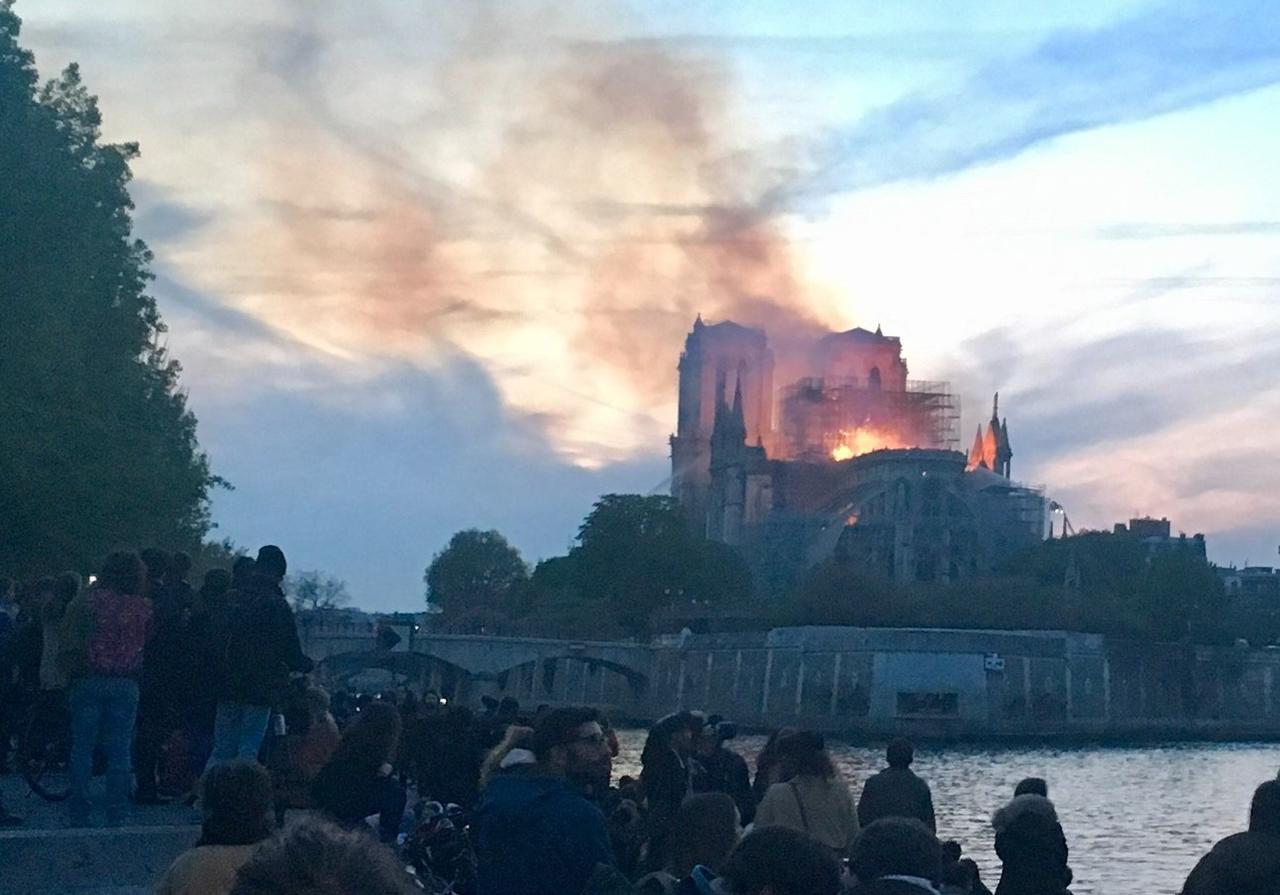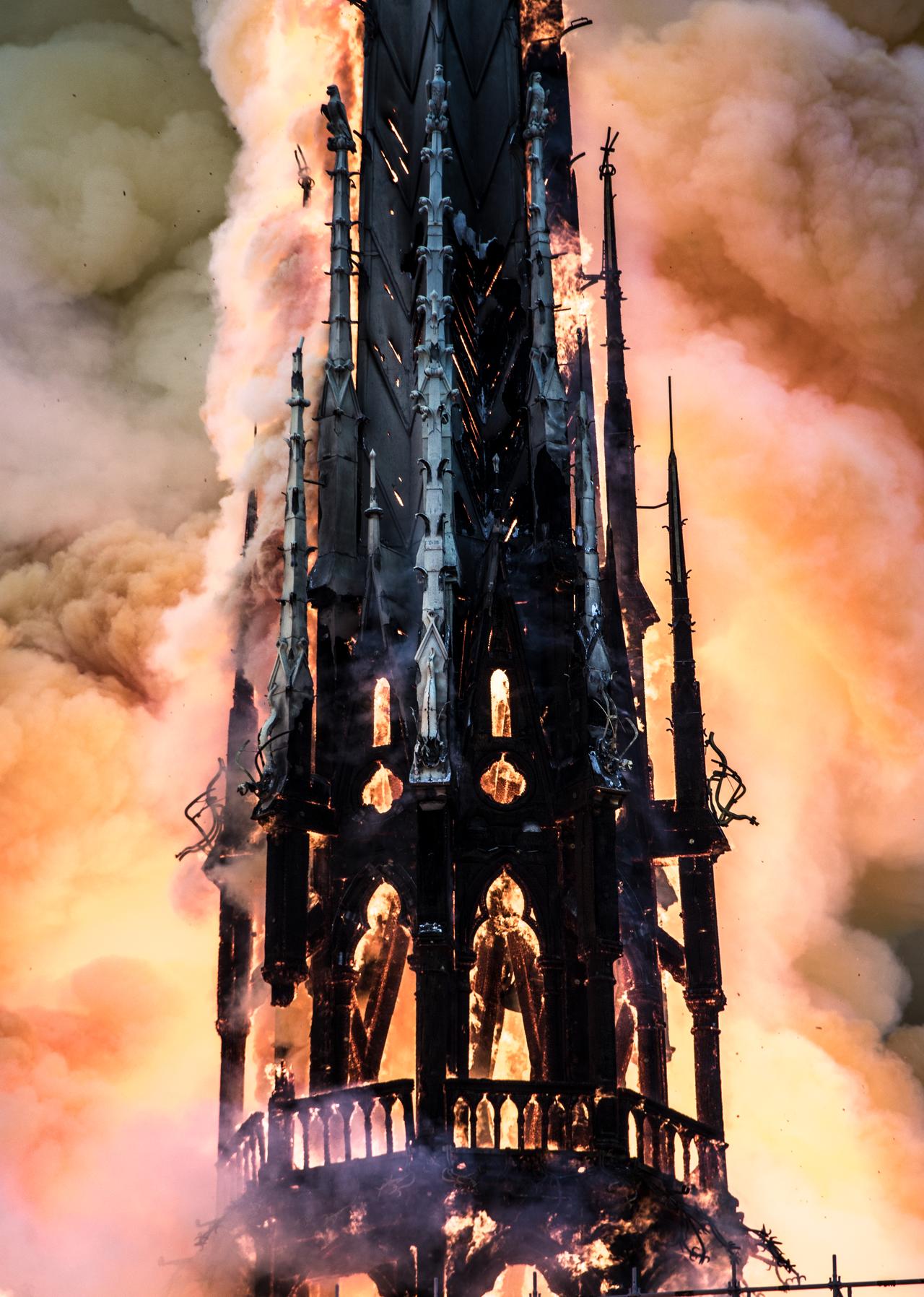Authored by Guillaume Durocher via The Unz Review,
The recent fire which destroyed much of the Notre-Dame Cathedral in Paris has led to a great outpouring of emotion. Social media were also ablaze and the government was quickly able to raise a €1 billion in donation pledges to rebuild the iconic monument. Some people I know were quite affected by the sight, being practically reduced to tears. Others were less moved. Quite a few people have been indignant about the money raised: Why not spend such sums on poverty or the environment rather than a mere pile of stone? One person even joked that the edifice should be razed to the ground to make way for something new.
Yet, Notre-Dame resonates. Partly, no doubt, for shallow reasons: Paris is the most-visited city in the world and Notre-Dame is one of the City of Light’s most-visited attractions. As such, millions of frequent-fliers, however godless or anti-Christian they might otherwise be, feel some emotional connection to this great cathedral.
And yet, I think there is something more. Notre-Dame is simply and objectively a national and earthly masterpiece: the intricately semi-controlled chaos of the the Gothic, the delicacy of “stone made into lace” (in the words of Jean-Yves Le Gallou), those gloriously Christian and European luminous flowers of stained glass, so suggestive of the transcendent . . . all this expresses, more viscerally and better than any book, the best that the French soul has had to offer to the world. Notre-Dame is a collective work of art, meticulously built up and maintained from generation to generation.
In much the same way, a nation is a collective work of art, each generation having a responsibility to protect and pass on this inheritance, and add their piece to the edifice. The Romanian philosopher Emil Cioran, a perceptive observer of national character if there ever was one, once said: “France is Notre-Dame Cathedral reflected in the Seine . . . a cathedral which spurns the sky.” We will have occasion to meditate on the meaning of these words.
Notre-Dame has a significance going beyond France however. Given France’s remarkable contribution to humanity’s cultural heritage, it is not too surprising that the art historian Kenneth Clarke chose Notre-Dame for the opening of his classic 1969 BBC documentary series Civilisation.
“What is civilization? ,” Clarke rhetorically asks. “I don’t know. I can’t define it in abstract terms yet. But I think I can recognize it when I see it . . .” He then turns to Notre-Dame, adding: “. . . and I’m looking at it now.”
Notre-Dame burning then is a symbol, a shocking reminder, of the impermanence not merely of old monuments, but of nations and civilizations. Growing up, I had the firm feeling that France was a living, vigorous, and timeless nation, and I was often moved reading the old Gaullist rhetoric of the need to fight for la France éternelle. When I saw those great monuments of brick and stone found in all major European cities, I had a feeling of solidity, of an immovable heritage, of a stable world. But all this is an illusion. Nothing is eternal, least of all nations and civilizations, although we may present things otherwise to reassure our selves. That is also why Notre-Dame burning was such a shock: there is the most graphic reminder that France is mortal and indeed Western civilization itself is mortal. This is not a new observation of of course, as the philosopher Paul Valéry said in 1919: “We civilizations now know that we are mortal.”
I must then admit that I was not particularly moved by Notre-Dame burning. I’ve already made my peace with impermanence. I already know that the rot that is consuming France will in all likelihood kill this fair nation within my lifetime. My heart has already been broken. I have already wept for this. Who can claim, in all sincerity, that in a mere hundred years a nation will still exist on this soil – let alone a nation worthy of the name “France”?
And I have wept and raged at my countrymen and my fellows who would persecutethose wish to prevent this. How then may I cry for Notre-Dame? This is the despair of all identitarians, most often a silent despair. And I’ve not done much to express my concern, besides a few scribblings and conversations. But others have. You may be crying for Notre-Dame, but others have wept long before you, at the prospect of our nation, indeed our entire European civilization, sleepwalking into nothingness. It is not a coincidence if Dominique Venner, a great historian and European patriot, took his own life in Notre-Dame Cathedral, the spiritual heart of France, in May 2013, in one final effort to awaken the French people. But how many listened then? That was then. We have today, and tomorrow.
via ZeroHedge News http://bit.ly/2ZR1kt1 Tyler Durden

